#wagner ring cycle
Explore tagged Tumblr posts
Text
Details:
1940s Hans Christian Andersen shorts: Intended as animated segments within a live-action film about the author's life, these would have adapted The Little Mermaid, The Fir Tree, Through the Picture Frame, The Emperor's Nightingale, and The Steadfast Tin Soldier. (Yes, I know we got adaptations of several of these, but I still want to share the concept art for old versions).
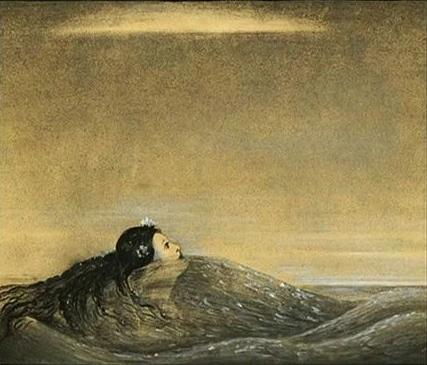
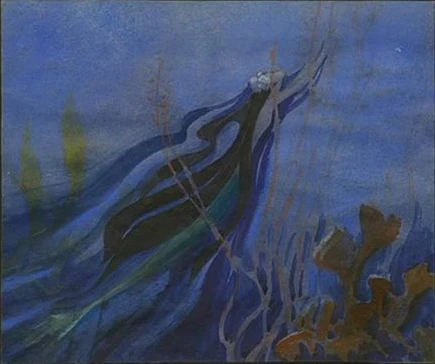
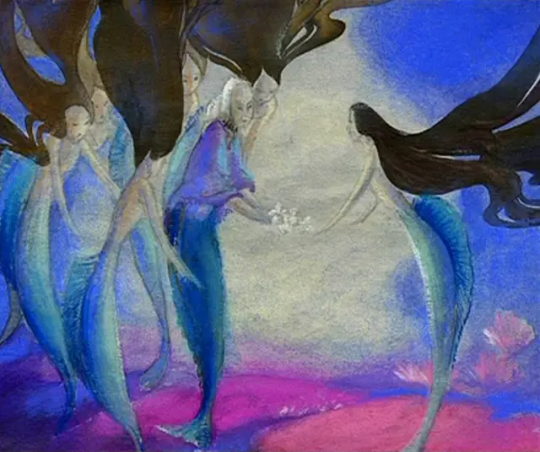

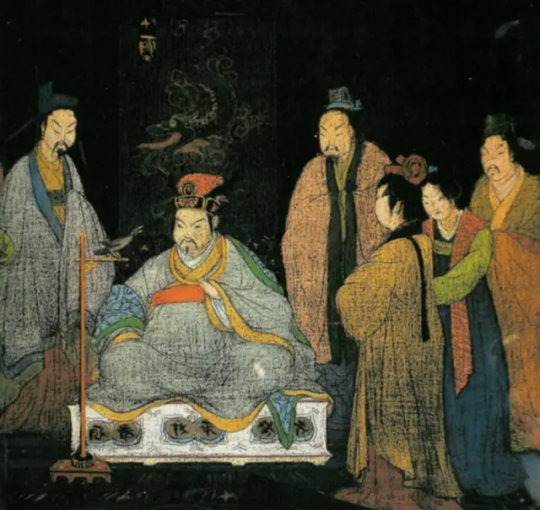
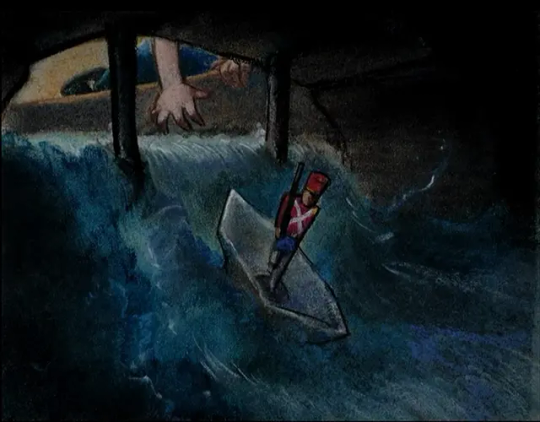
Gremlins: A film they worked on a lot during WWII but couldn't crack the story (or find money to make it)
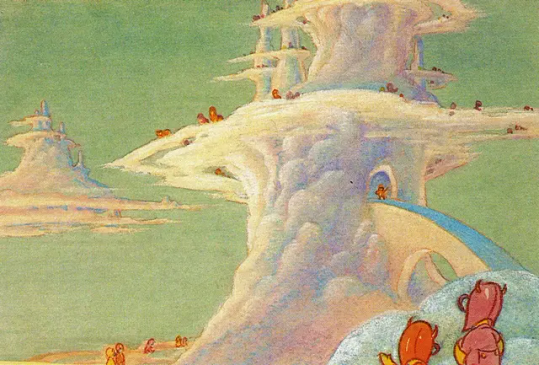
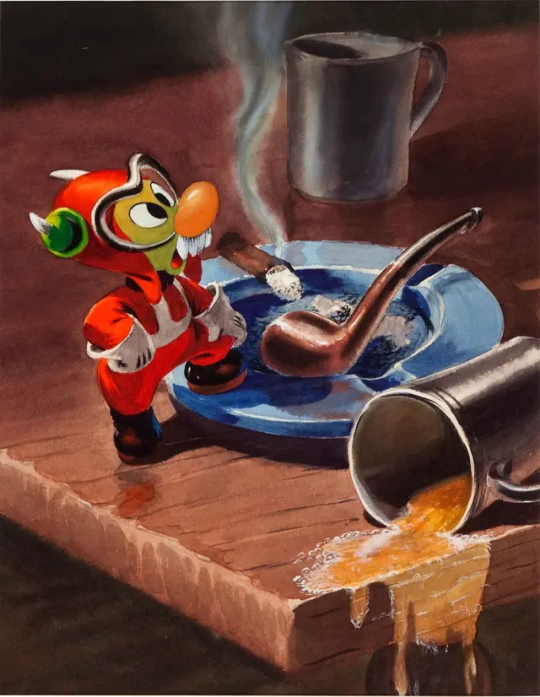
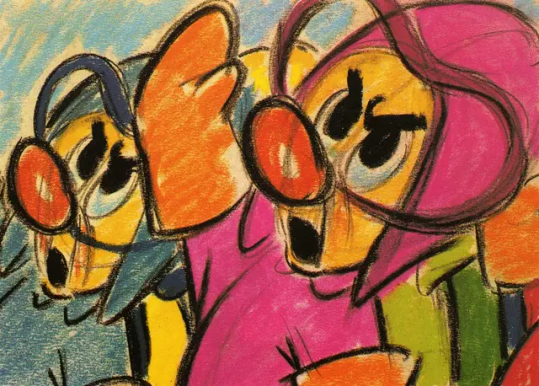
Don Quixote: They tried to adapt the story in various ways in the '40s, '50s, and '00s, which is too long to get into here, but it led to some interesting concept art.
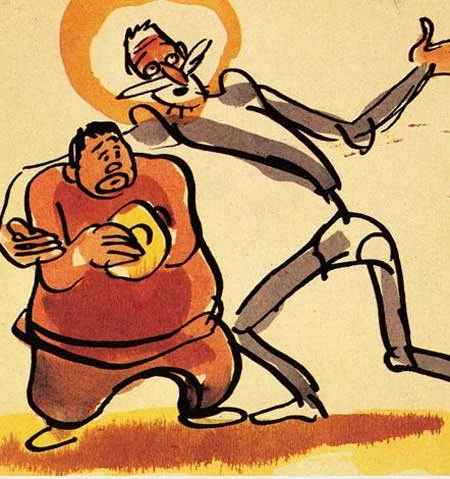
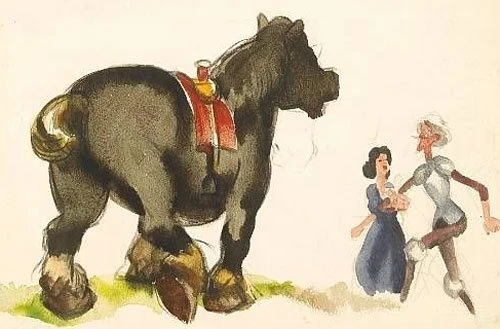
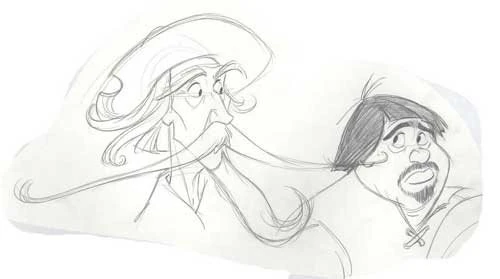
Chanticleer: A story about an arrogant rooster who thought his crow made the sun rise, and used this to rule over the other farmyard animals. Reynard the Fox was a villain who tried to take advantage of the discontent in the farm animals to take over as their leader (with plans to eat them), which leads to Chanticleer saving them and learning humility. Work started on it in the 1940s, and it was so close to being made in the 1960s, but they decided to go with The Sword in the Stone instead. Some of the animators loved it, though, and some of the character concepts were later adapted into Robin Hood.

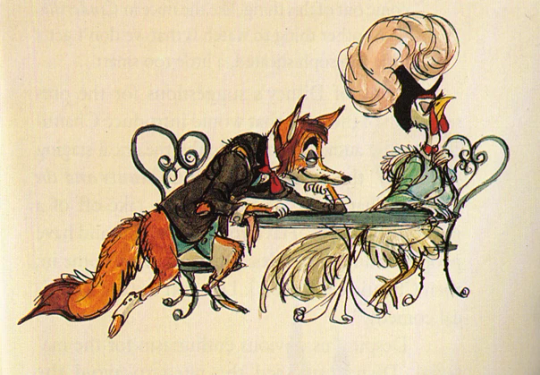
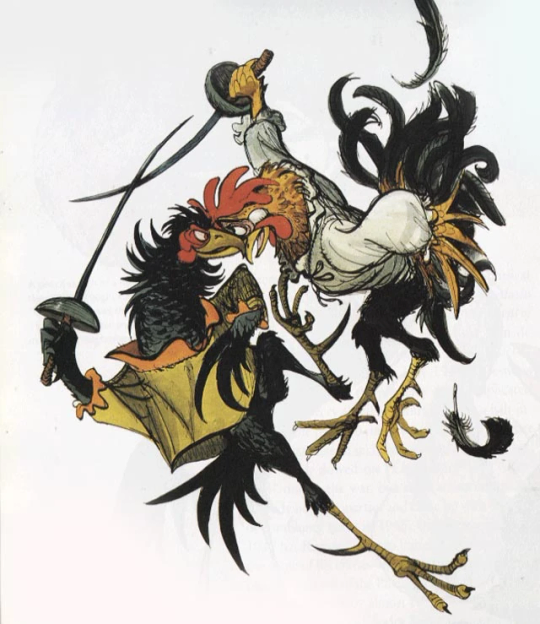
Catfish Bend: I haven't found much about the story beyond "talking animals in the South", but the concept art intrigues me. It would have been released in 1981, but after it was shelved, some of the concepts went on to inspire The Rescuers.
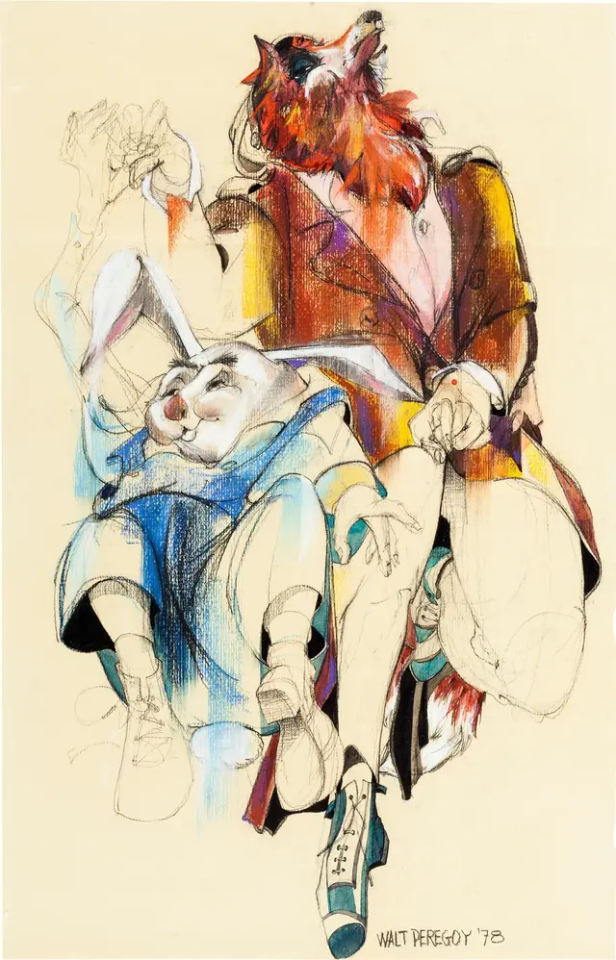

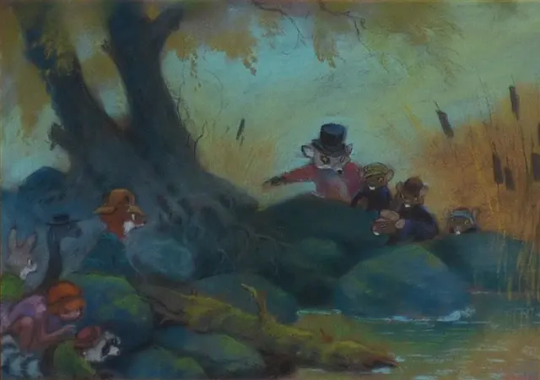
Mistress Masham's Repose: An adaptation of T.H. White's novel, pitched in the late 1980s
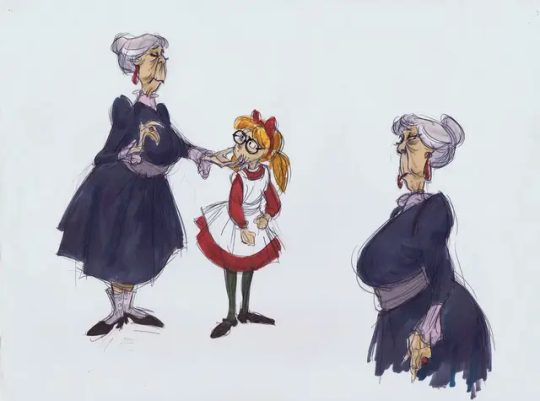
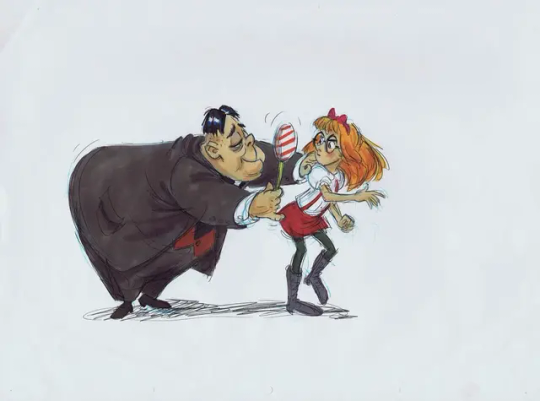
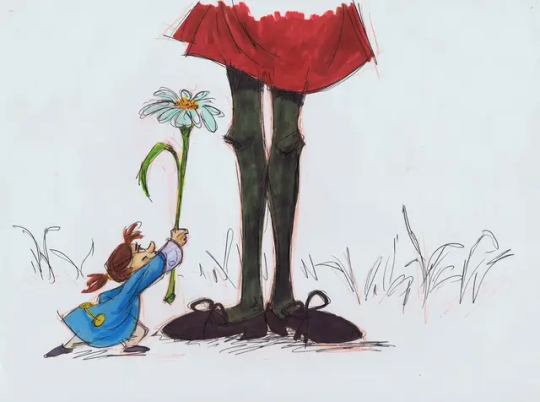
Fraidy Cat: 2009 film about a pampered housecat named Oscar who is falsely accused of kidnapping another pet and has to team up with a cockatoo and try to find the real culprit to clear his name. Shelved because they figured kids and general audiences wouldn't understand the Hitchcock references (which seems like a terrible reason, but alas).
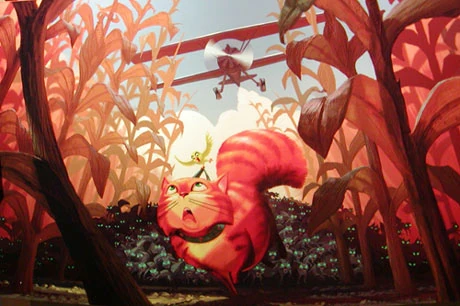
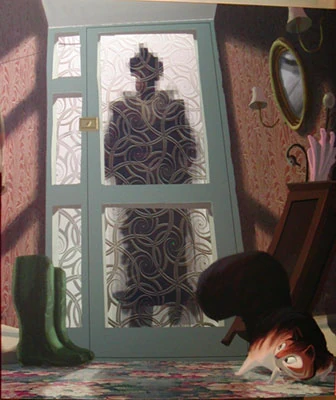
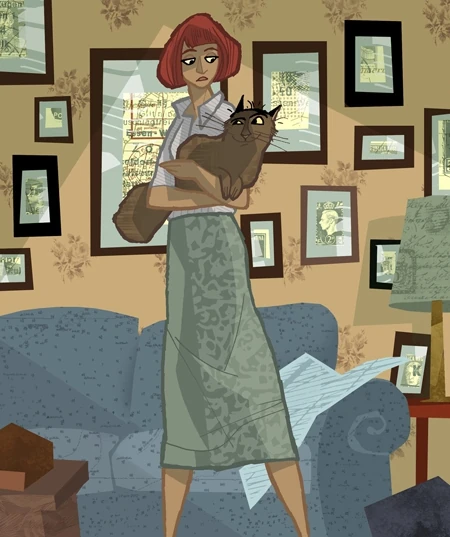
King of the Elves: Announced in 2009, it was a 3D animated film scheduled for 2012, before being shelved in 2016. Adapted from a Philip K. Dick story, it was about an ordinary man who saves some elves from a troll and (apparently reluctantly) gets declared their king.
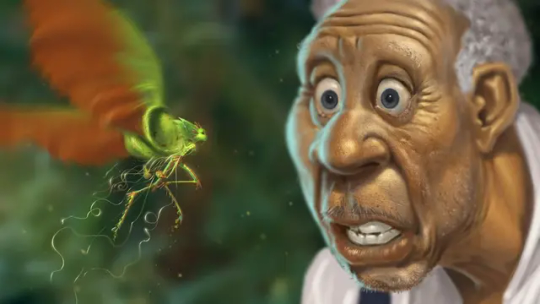

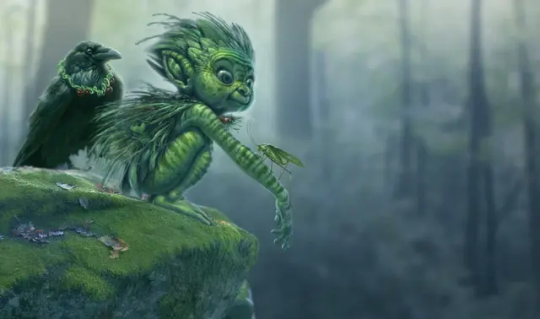
Gigantic: A retelling of Jack and the Beanstalk set during the Spanish exploration, it involves Jack meeting an 11-year-old female giant who treats him like a doll, and eventually fighting much larger Storm Giants. Would have had songs written by the team from Frozen and was set to be released in 2018, then moved to 2020 before being cancelled because apparently they couldn't figure out the story.
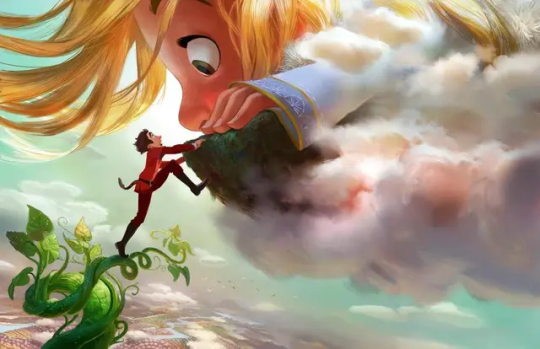
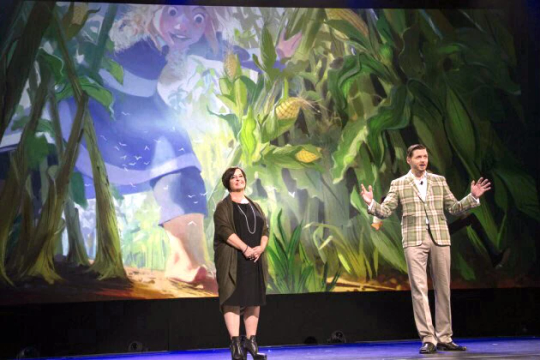
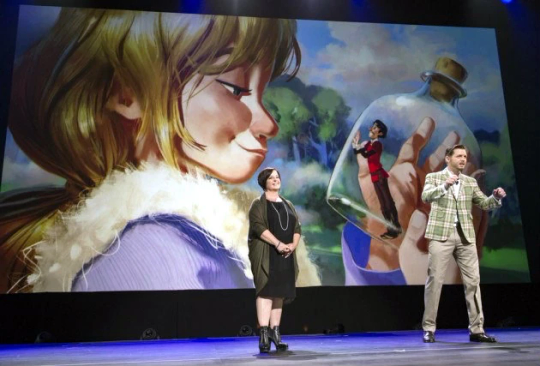
#polls#disney#random thought of the day#the dive down the rabbit hole forced me to make this#i tried to limit it to projects that weren't made later (except the hans christian andersen ones because kay nielsen did concept art!)#and to ones that had cool concept art available#and weren't sequels to other things#but there were a lot of cool ideas that didn't make it into the poll#did you know that someone pitched using elements of the hobbit in fantasia?#set to wagner's ring cycle?#(there were other disney tolkien pitches over the years but that one was one of the most intriguing)
84 notes
·
View notes
Text






















"ZU NEUEN TATEN, TEURER HELDE" Götterdämmerung - R. WAGNER Here some Siegfrieds and Brünnhildes.
Peter Cornelius as Siegfried; Copenhagen, 1905
Charles Dalmores as Siegfried; Brussels, 1902
Ejnar Forchhammer as Siegfried; ?, ?
Paul Franz as Siegfried; Paris, 1925
Hans Grahl as Siegfried; Hamburg, 1934
Alois Hadwiger as Siegfried; Coburg-Gotha, 1907
Ottfried Hagen as Siegfried; Munich, 1908
Ernst Kraus as Siegfried; Berlin, ca. 1907
Gorrhelf Pistor as Siegfried; Bayreuth, 1931
Julius Pölzer as Siegfried; Munich, 1932
Erik Schmedes as Siegfried; Vienna, ca. 1910
Josef Schöffel as Siegfried; Karlsruhe, ca. 1921
Hans Tänzler as Siegfried; Karlsruhe, 1910
Jacques Urlus as Siegfried; Berlin ?, ca. 1907
Fritz Vogelstrom as Siegfried; Mannheim, ca. 1909
Hermann Winkelmann as Siegfried; Vienna, 1880
Marie Brema as Brünnhilde; London, 1897
Louise Grandjean as Brünnhilde; Paris, 1908
Felia Litvinne as Brünnhilde with Grane; Brussels, 1902
Katharina Senger-Bettaque as Brünnhilde; Berlin, 1898
Fanni Wahrmann-Schöllinger as Brünnhilde with Grane; Hannover, 1920
Hedwig Reicher-Kindermann as Brünnhilde; Leipzig, ca. 1886
#classical music#opera#music history#composer#bel canto#classical composer#aria#classical studies#maestro#chest voice#Götterdämmerung#Richard Wagner#Twilight of the Gods#Musikdrama#Der Ring des Nibelungen#The Ring of the Nibelung#The Ring Cycle#The Ring#Bayreuth Festspielhaus#Bayreuth Festival#Old Norse#Ragnarök#Norse mythology#German legends#Nordic legends#classical musician#classical musicians#classical history#opera history#history of music
36 notes
·
View notes
Text


Maxfield Parrish- "Wagner's Ring of the Nibelung Part I"
#maxfield parrish#illustration#die nibelungen#wagner#wotan#odin#the ring cycle#art#19th century#valhalla
21 notes
·
View notes
Text


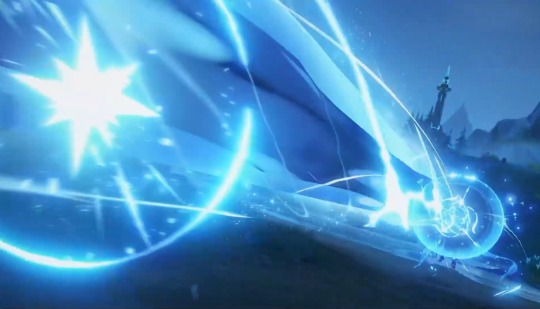
EVERYONE NEEDS TO WAKE UP RIGHT NOW
edit: unfortunately, new footage shows that when neuvilette's charged attack doesn't hit any enemies, the stars don't appear... so it might just be a random impact effect that vaguely resembles the star.
HOWEVER... footage from the live stream* shows that stars DO appear when he's powering up his charged attack and interestingly enough, they're surrounded by purple ousia energy even though neuvilette is a pneuma aligned character.
*it should be noted that footage from the live stream isn't indicative of the final product
#no idea what this means#but if neuvi really is a dragon then that 8 pointed star probably originated from the dragon sovereigns#also the fact that the dragon king is called nibelung#in wagner's ring cycle nibelung is alberich lol lmao even#.txt
108 notes
·
View notes
Text
valkyries are really the most metal form of horse girls if u think about it
#that’s it. send tweet#opera#classical music#richard wagner#opera shitpost#ring cycle#opera meme#der ring des nibelungen
9 notes
·
View notes
Text


















Fritz Lang's 1924 masterpiece in two parts: DIE NIBELUNGEN!
youtube
#fritz lang#die nibelungen#richard wagner#the ring cycle#silent movies#die nibelungen: siegfried#Youtube
7 notes
·
View notes
Text

Siegfried and the Rhinemaidens by Hans Zatzka
#siegfried#art#rhinemaidens#rhine maidens#sigurd#rheintöchter#rhine daughters#hans zatzka#richard wagner#der ring des nibelungen#germanic mythology#germanic#norse mythology#the ring of the nibelung#german#old norse#ring cycle#woglinde#wellgunde#flosshilde#floßhilde#legends#folklore#nibelungenlied#water sprites#nixies#mermaids#danube#europe#rhine
96 notes
·
View notes
Text
This question occured to me and I want to get some opinions on it
5 notes
·
View notes
Text
Broke: Ugly modern minimalist Wagner staging
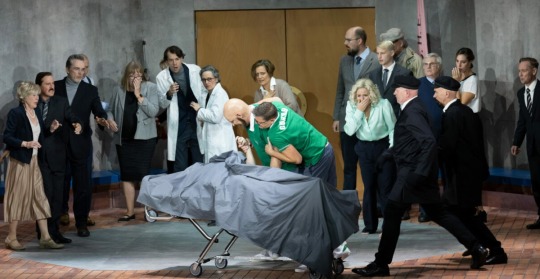
Woke: Beautiful old-fashioned Wagner staging
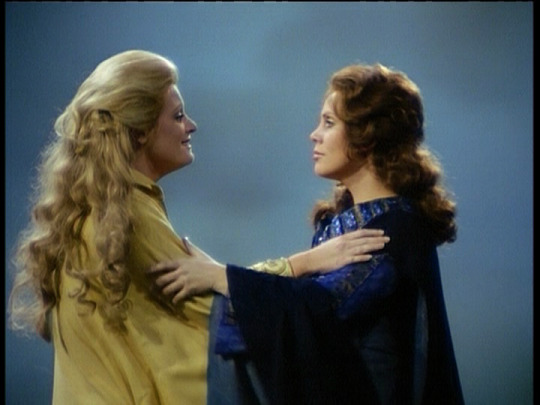
Bespoke: FUTURISTIC PSYCHEDELIC SPACE WAGNER
I have slowly watched the Ring Cycle in the 2008 Valencia production over the last weekends. (It's also on YT, but without subtitles.) First time I watched the whole thing! I wanted something more traditional at first, but I happened upon an excerpt of this version and it just somehow appealed to me, so I watched this instead.
(I still agree with what I said on the topic earlier - if I didn't know anything about the source material, the Nibelungen and Norse mythology, I would have found this staging very confusing.)
Anyway, here's some pictures because it just looks so damn cool. Sorry the quality is not so great. DON'T click to enlarge! Believe me, you'll regret it.
THE NORNS:
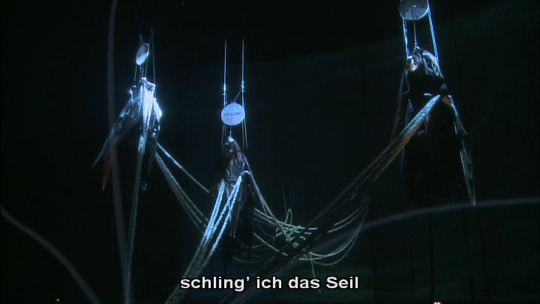

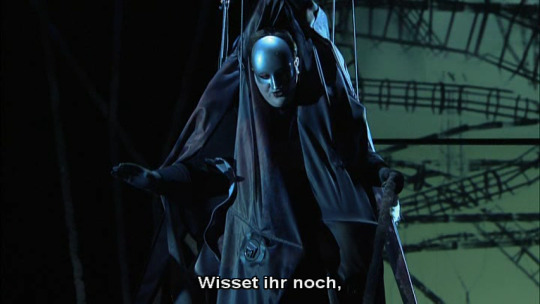

Fricka argues with Wotan:

THE VALKYRIES:
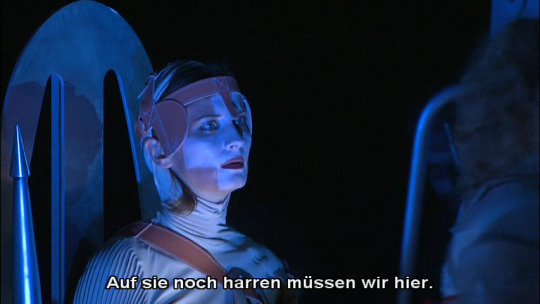
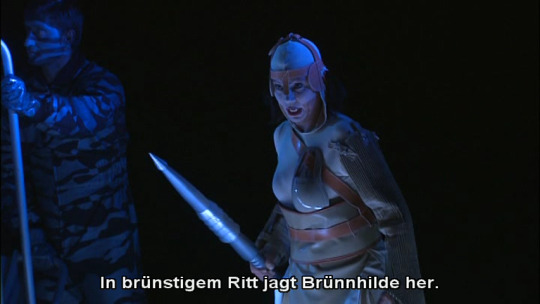



A talking bird:

This is what the inside of a dragon lair looks like:
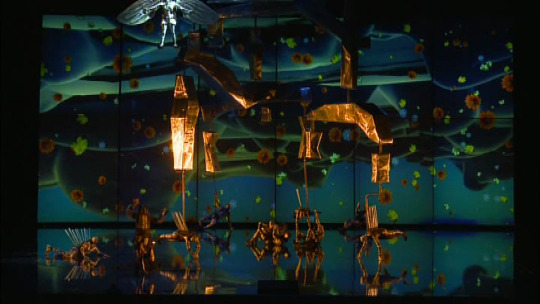
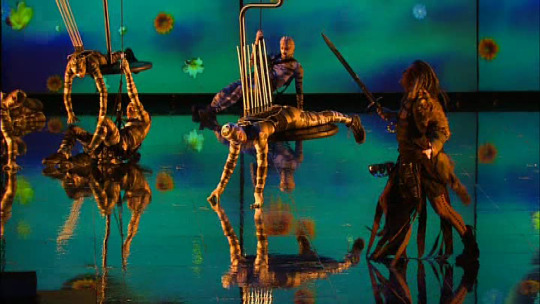
The scheming nobles / corrupt elite are investment bankers or something. First picture: Gutrune and Gunther. Second picture: Hagen and his men.

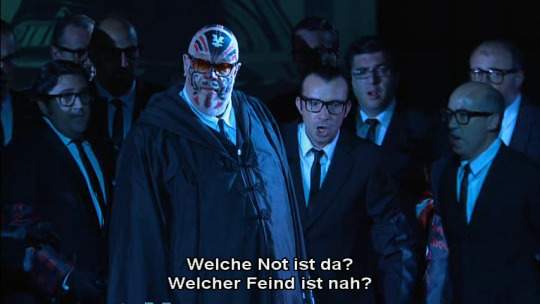
Alberich visits his son Hagen:

Brünnhilde in her wedding dress, having the worst day of her life in front of Rhine-waves made from empty plastic bottles:

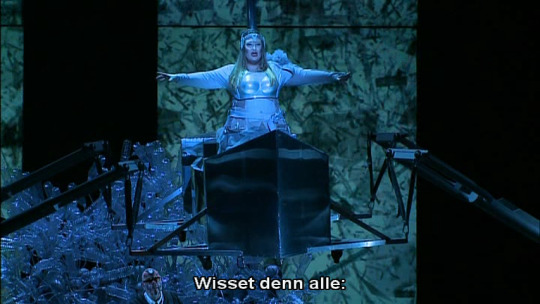
Mime in his chemistry lab (this must be REALLY confusing to anyone who doesn't know the story - why does he have an isolated chemistry lab in the forest? Originally he's a smith.):

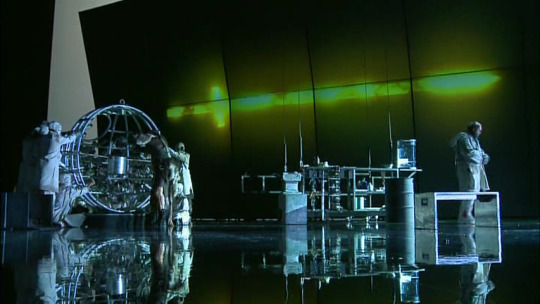

Wotan and Mime talk about giants, which are visualized as battle mechs, I was so delighted!
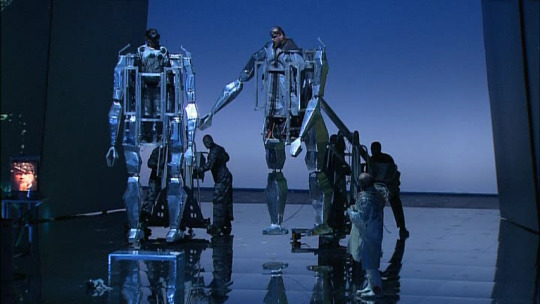
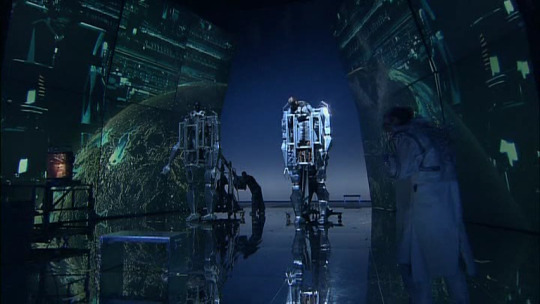
Wotan, who was intensely dramatic for 16 hours straight:
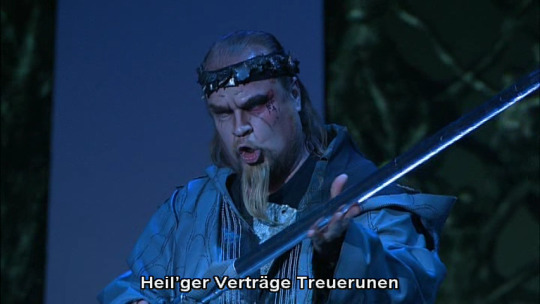
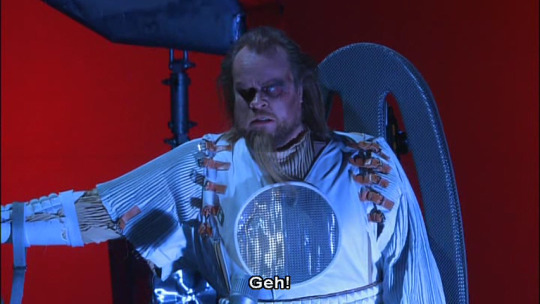
The wall of fire around Brünnhilde's rock bed:
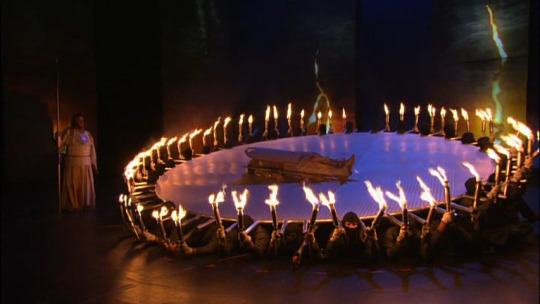
Gutrune always travels in her personal miniature death star:
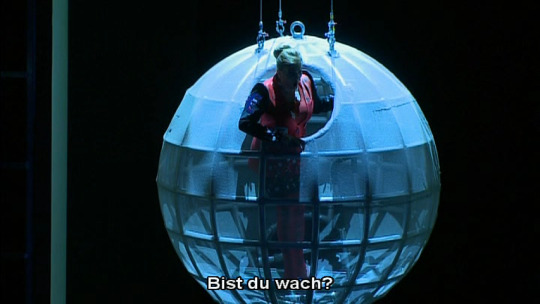
Finally, Ragnarök:
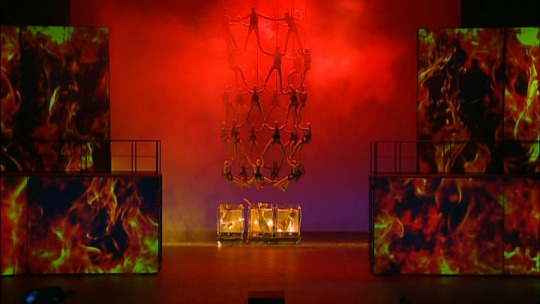
And those are the 30 pictures per post that I'm allowed.
#wagner#ring cycle#The Opera#norse mythology#music stuff#opera#siegfried#brünnhilde#wotan#germanic mythology
31 notes
·
View notes
Photo
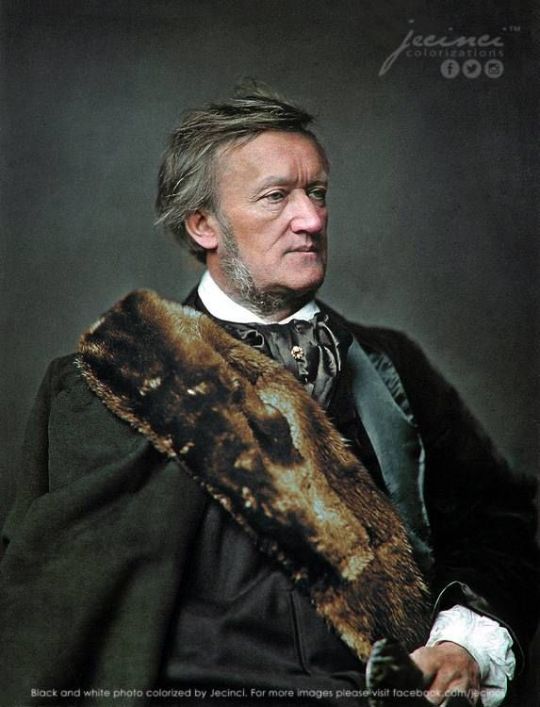
I write music with an exclamation point!
- Richard Wagner
If he were alive today Wagner would be 210 years old. Born on 22 May 1813, Wagner lived a tumultuous life created by his own very unstable personality. But there is no denying the man, infamous for his antisemitism, political exile, and constant poverty, was also a genius in every manner imaginable.
It is no stretch to say that without Wagner, music, theatre, and even other art forms such as cinema, would not be what they are today. Wagner created modern music and modern opera. He revolutionised the theatrical experience for audience members. He reshaped the understanding of what opera was and could be.
He was not only a composer, but also a librettist, conductor, stage director, actor, philosopher, writer, and poet. However, few composers are as divisive as Richard Wagner. Even putting aside his controversial character, holding political and antisemitic views, his music split audiences. A bit of a megalomaniac, his operas became all-engulfing “music dramas”, drawing on his concept of the Gesamtkunstwerk (the total work of art) which synthesised music and poetry with stagecraft, a unification of the arts through theatre. He even had an opera house built – the Bayreuth Festspielhaus – specifically to stage his works - one of the most incredible theatres in the world.
Wagner’s music was revolutionary and it influenced generations of composers. Claude Debussy made two pilgrimages to Bayreuth. In 1877, after hearing Act 1 of Tristan und Isolde, he declared it “decidedly the finest thing I know”, but by 1903 he had turned dissenter, commenting that Wagner was “a beautiful sunset that was mistaken for a dawn”.
Although other composers had used Leitmotifs before, Wagner took it to new levels. Der Ring des Nibelungen - his epic 15-hour tetralogy based on Norse sagas charting the fall of the gods - employs recurring Leitmotifs that represent characters, objects, actions and emotions. Indeed His works are among the first to be truly through-written without functional musical numbers that stopped for applause. He broke from previous musical tradition in how he saw his works as symphonies, the orchestra’s complexity pushed beyond anything realised before.
#wagner#richard wagner#quote#opera#classical music#music#musical theatre#the ring cycle#composer#german#bayreuth#genius#culture#arts
54 notes
·
View notes
Text
Kinuko Y. Craft’s posters for the Dallas Opera’s production The Ring of the Nibelung by Richard Wagner



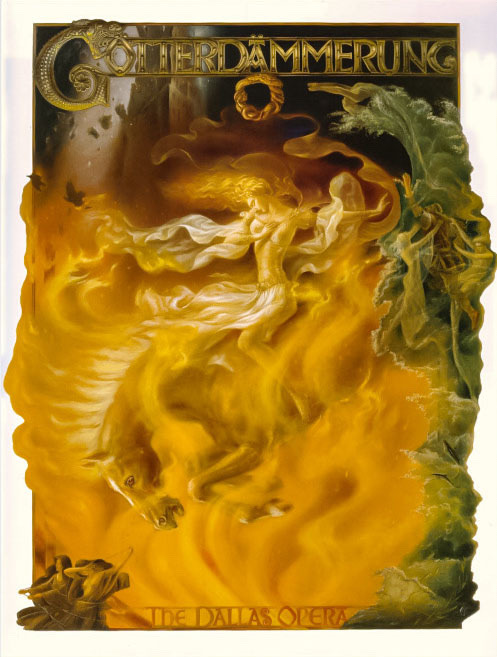
#poster#dallas opers#opera#richard wagner#the ring of the nibelung#das rheingold#siegfried#gotterdammerung#kinuko y. craft#design#die walküre#the ring cycle
51 notes
·
View notes
Text
Siegmund and Sieglinde in Manga & Comicbook Adaptations of Wagner's Ring: Masterlist
Alice
Azumi
Djief, Jarry, et al.
Ikeda & Miyamoto
Kane & Thomas
Russell
#der ring des nibelungen#the ring of the nibelung#ring cycle#opera tag#siegmund x sieglinde#wagner comics#wagner manga#masterlist#masterpost
12 notes
·
View notes
Text



















"NUN ZÄUME DEIN ROSS, REISIGE MAID!" DIE WALKÜRE - R. WAGNER (2 act)
Here some Brünnhildes
Mathilde Fraenkel-Claus as Brünnhilde; ?, (ca. 1902)
Marie Burk-Berger as Brünnhilde; Munich, 1907
Lucienne Breval as Brünnhilde (print); Paris, 1892
Berta Morena as Brünnhilde; Munich, 1907
Emmy Hoy as Brünnhilde; Kiel, 1912
Maria Maier as Brünnhilde; Mainz, ?
Maria Gembarzewska / Maryla von Falken as Brünnhilde; Munich, 1913
Helena Forti as Brünnhilde; Dresden, 1913
Loni Meinert as Brünnhilde; Mannheim, 1914
Gabriele Englerth as Brünnhilde; Wiesbaden, ca. 1915
Theo Drill-Oridge as Brünnhilde; Hamburg, ca. 1923
Helene Wildbrunn as Brünnhilde; Vienna, ca. 1923
Elsa Alsen as Brünnhilde; New York, 1926
Eugenie Burkhardt as Brünnhilde; Dresden, 1926
Nanny Larsén-Todsen as Brünnhilde; Bayreuth, 1927
Olga Haselbeck as Brünnhilde; Budapest, (ca. 1930)
Henriette Gottlieb as Brünnhilde; Berlin, 1930
Frida Leider as Brünnhilde; Berlin, ca. 1934
#classical music#opera#music history#bel canto#composer#classical composer#aria#classical studies#maestro#chest voice#Die Walküre#The Valkyrie#Musikdrama#Richard Wagner#Der Ring des Nibelungen#The Ring of the Nibelung#Norse mythology#Völsunga saga#Poetic Edda#German legends#Nordic legends#the Ring cycle#classical musician#classical musicians#classical history#opera history#history of music#historian of music#musician#musicians
19 notes
·
View notes
Text
“In the first stages of the operas, Wotan is very concerned with the outcome of what is going to happen. He is frustrated, and he is always seeking to find a way to change the situation. But by this point in the opera, he has become more like Loge, more becoming involved in a scene and teasing, and then extracting himself, not taking any real direct action. And the reason is that Wotan, the Father, wants his son-his spiritual son, his Human Soul-to be strong, to develop his will, to not be weak, but to act when necessary, in the right way, and to know how to do it. This is why Wotan is around, is observing, is always watching, but never interferes. He never tells Siegfried what to do. He never tells him what to do. Meditate on that. Siegfried has to do what he thinks is right. He has to act, but on his own. Wotan does not want to develop a weak soul, a soul that is always lost, without direction, without strength. Wotan needs a warrior. Wotan needs Siegfried to have his own power.”
—Gnostic Instructor
#spirituality#esoteric#suffering#Siegfried#opera#ring of the Nibelungen#Richard Wagner#ring cycle#Wotan#norse mythology#Gnostic#gnosis#Glorian
5 notes
·
View notes
Text
we all know suits are an ugly costume choice, but
hagen in patrice chéreau's götterdämmerung is the only character who is legally allowed to wear a suit as a costume. and here's why.

^ (hagen is on the left)
i wish i could ask chéreau if he specifically intended it to be read this way because imo nothing screams overworked dead-inside rage-harbouring office cubicle worker like a baggy ill-fitting suit and a worn collar with a floppy tie. it screams corporate rat race from which you'll never escape, forever trapped behind a desk slaving away for a promotion and a pat on the back from your boss, a moment's praise and attention, but destined to stay the worker and never enter the c-suite. office cubicle worker is, in a way, the nightmare continuation of the idea alberich was sick of: toiling away in a factory as a member of the then-working-class, except we're 100-ish years past rheingold's industrial revolution setting now. as the nibelungen will never escape the factory, their industriousness trapped behind clanging machines and never to be rewarded with true riches for their labour, so the office cubicle worker will make a dime for his boss to make a dollar.
and that's hagen, isn't it? that's his heritage as a half-nibelung son. he's inherited this fate of workingworkingworking, except he unfortunately landed in a position where he can wonderfully examine the life of riches gunther and his dinner suit crew lead. he gets a spot at the table, gets to eat their food, but he is there to counsel gunther and increase his half-brother's fame, not receive any of his own. he will never exit the rat race. and just the way alberich's treasure was stolen by a richer, stronger god who simply took what he wanted, hagen now meets siegfried, who, while not richer, is simply stronger and very adept at seizing what he wants by some sort of birthright that lets him cruise right past the rat race.
so you've got this little social climber, who doesn't seem to be aware of his birthright, which is the gift to be able to seize anything he wants simply by the right of the stronger, which he makes ample use of, while you're overworked and overtired. fritz hübner's eyes have been overshadowed and his lips almost blackened and he looks like he hasn't showered or shaved in days, and his face twitches when he's left alone. he sings fantasies of everyone serving him, finally, a nibelung son. if i were in that position and only so much as felt the shadowy threat of another person ascending to a position i actually want by some right of the stronger, some intangible BiRtHrIgHt that shouldn't even exist yet never stops separating people - yeah, i'd stab that fcker too.
so yeah, the suit is ugly. it is not a vibe. but this specific iteration of the character is so far the only person for whom it's justified because the reasoning goes beyond "it’s a modern production". the rest of you, go wear capes.
#opera#watching the chereau ring again and determined to make it everyone else's problem#classical music#ring cycle#richard wagner#der ring des nibelungen#götterdämmerung#opera shitpost
8 notes
·
View notes
Text
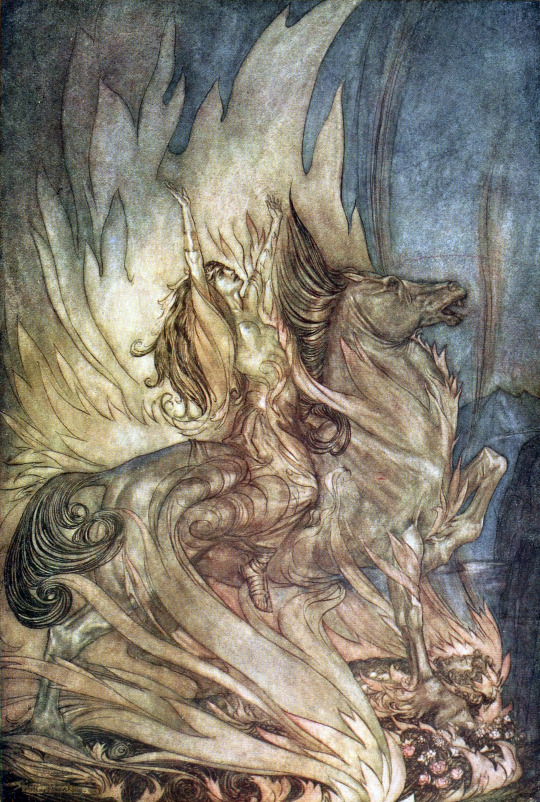
youtube
7 notes
·
View notes